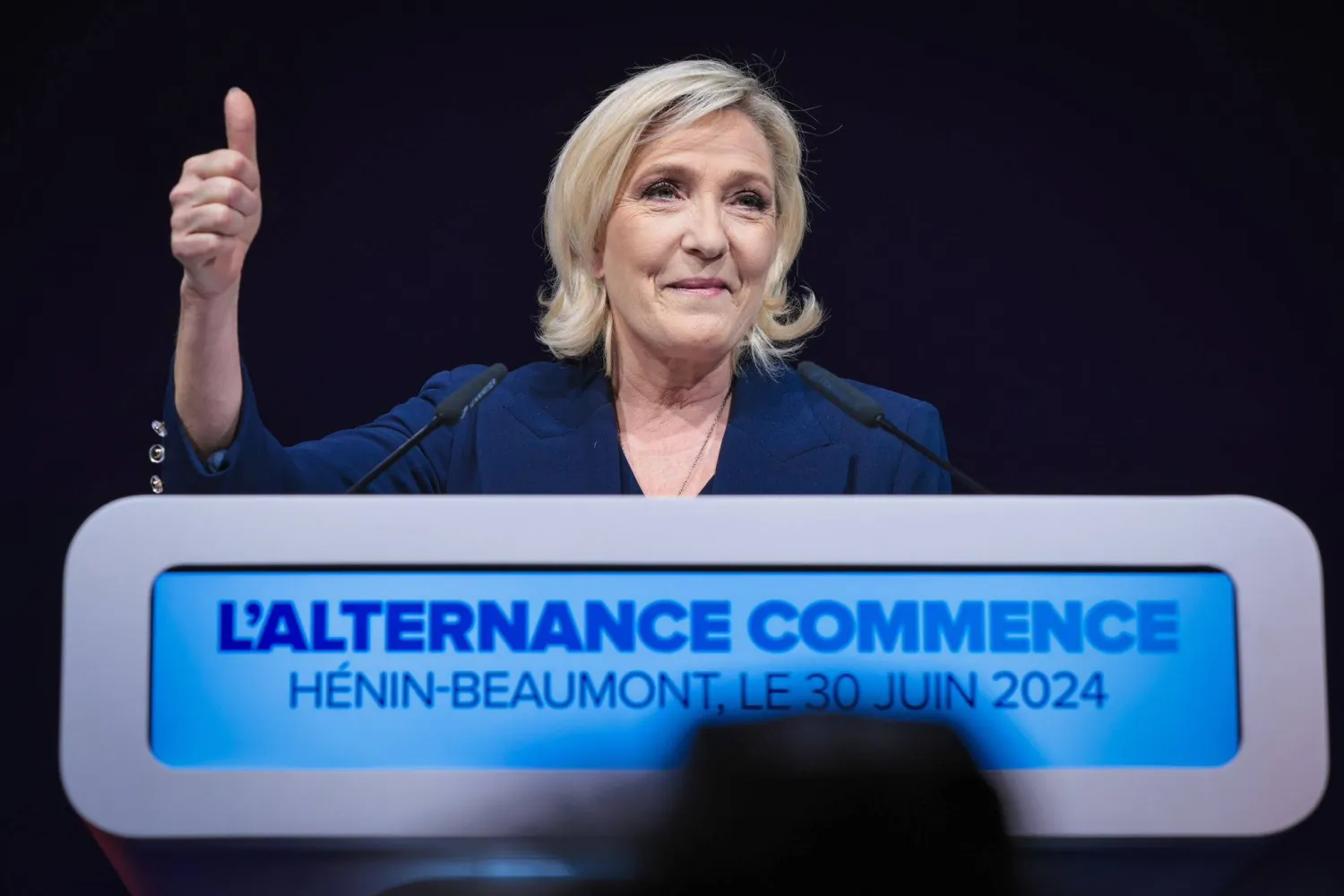The far-right National Rally leaped into a strong lead Sunday in France's first round of legislative elections, polling agencies projected, bringing the party closer to being able to form a government in round two and dealing a major slap to centrist President Emmanuel Macron and his risky decision to call the surprise ballot.
When he dissolved the National Assembly on June 9, after a stinging defeat at the hands of the National Rally in French voting for the European Parliament, Macron gambled that the anti-immigration party with historical links to antisemitism wouldn't repeat that success when France's own fate was in the balance.
But it didn't work out that way. With French polling agencies projecting that the National Rally and its allies got about one-third of the national vote on Sunday, Macron's prime minister warned that France could end up with its first far-right government since World War II if voters don't come together to thwart that scenario in round two next Sunday, The Associated Press reported.
“The extreme right is at the doors of power,” Prime Minister Gabriel Attal said. He twice described National Rally policy pledges as “disastrous” and said that in the second-round ballot, “not one vote should go to the National Rally. France does not deserve that."
French polling agencies' projections put Macron’s grouping of centrist parties a distant third in the first-round ballot, behind both the National Rally and a new left-wing coalition of parties that joined forces to keep it from winning power.
Securing a parliamentary majority would enable National Rally leader Marine Le Pen to install her 28-year-old protege, Jordan Bardella, as prime minister and would crown her yearslong rebranding effort to make her party less repellent to mainstream voters. She inherited the party, then called the National Front, from her father, Jean-Marie Le Pen, who has multiple convictions for racist and antisemitic hate speech.
Still, the National Rally isn’t there yet. With another torrid week of campaigning to come before the decisive final voting next Sunday, the election’s ultimate outcome remains uncertain.
Addressing a jubilant crowd waving French tricolor flags of blue, white and red, Le Pen called on her supporters and voters who didn't back her party in the first round to push it over the line and give it a commanding legislative majority. That scenario would force Bardella and Macron into an awkward power-sharing arrangement. Macron, first elected in 2017, has said he will not step down before his second term expires in 2027.
“The French have almost wiped out the ‘Macronist’ bloc,” Le Pen said. The results, she added, showed voters’ “willingness to turn the page after 7 years of contemptuous and corrosive power.”
French Voters Propel Far-right National Rally to Strong Lead

A handout photo made available by the official X account of Marine Le Pen shows Marine Le Pen, the candidate for the National Rally party reacting at the end of the French election day in Paris, France, 01 July 2024. EPA/Cuenta Oficial Marine Le Pen

French Voters Propel Far-right National Rally to Strong Lead

A handout photo made available by the official X account of Marine Le Pen shows Marine Le Pen, the candidate for the National Rally party reacting at the end of the French election day in Paris, France, 01 July 2024. EPA/Cuenta Oficial Marine Le Pen
لم تشترك بعد
انشئ حساباً خاصاً بك لتحصل على أخبار مخصصة لك ولتتمتع بخاصية حفظ المقالات وتتلقى نشراتنا البريدية المتنوعة







